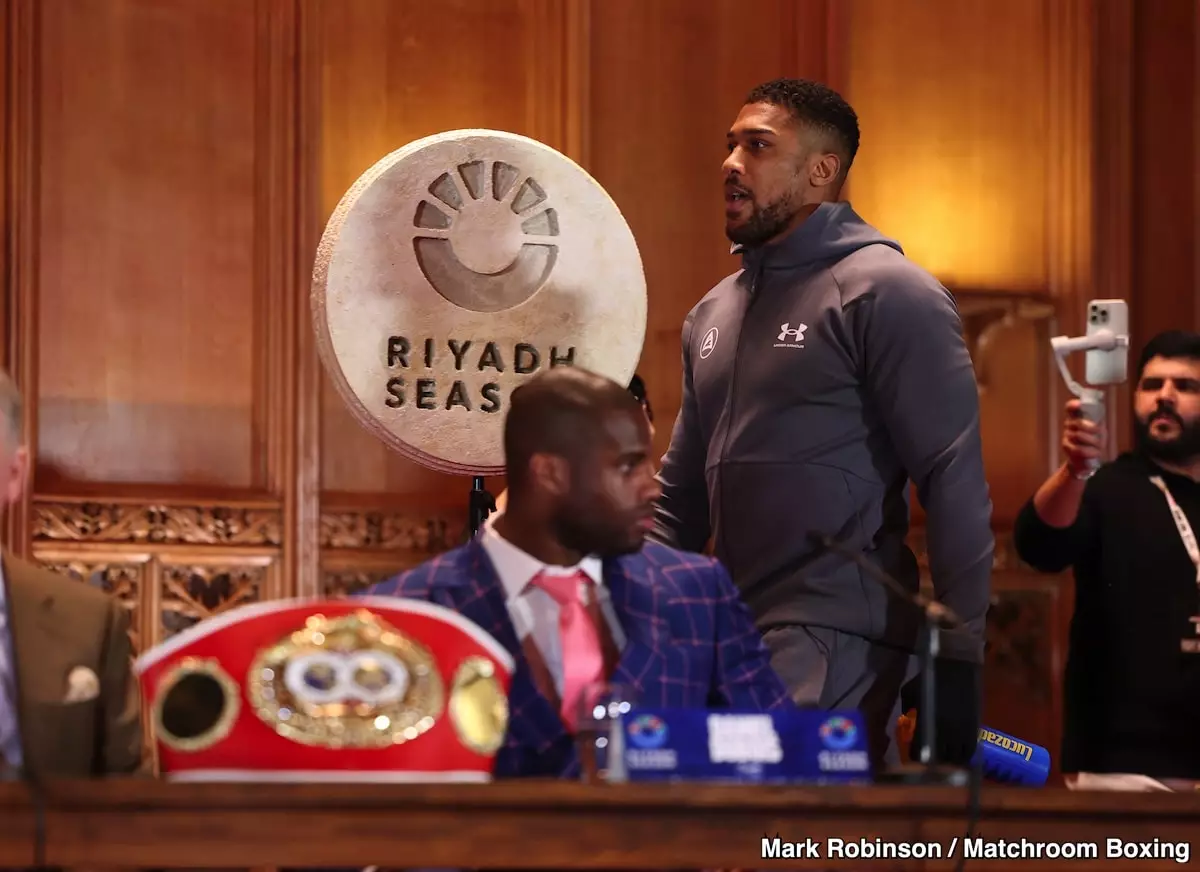In a sport as unpredictable as boxing, the contrasting opinions surrounding Anthony Joshua’s imminent future reflect the tension between expectation and reality. Despite having suffered a significant knockout defeat at the hands of Daniel Dubois, Joshua’s promoter, Eddie Hearn, maintains that the former two-time heavyweight champion is “in a really good position.” This assertion raises eyebrows, particularly among fans and analysts who question whether Joshua can rebound effectively after such a devastating loss. However, the boxing landscape is riddled with possibilities, making Hearn’s optimism slightly more understandable, albeit still questionable.
The prospect of a rematch with Dubois or a clash against Tyson Fury presents intriguing narratives for Joshua. Hearn’s comments indicate a desire to push forward, laying out clear immediate objectives without the burden of a so-called warm-up match. The notion that a boxer can be in a “really good position” after a crushing defeat may seem paradoxical, yet it underscores the complexities of boxing matchmaking, where opportunities are often dictated by timing and marketability rather than straightforward merit.
Should Joshua choose to pursue a rematch with Dubois, the stakes are immensely high. Not only would this serve as a chance for revenge, but it would also test Joshua’s resilience and ability to regain his status among boxing’s elite. Hearn has stated that if AJ is to take this route, training would need to commence almost immediately to target a rematch in February. However, this plan hinges on a multitude of uncertainties, including how Dubois fares against other top contenders if he does not square off against Joshua.
On the flip side, the proposed fight with Tyson Fury looms large as a quintessential heavyweight bout, taking into account the historical backdrop and rivalry between the two fighters. Hearn suggests that if Fury defeats Oleksandr Usyk, there is a chance for Joshua to fight Fury later, potentially for a world title. Yet, to build tension, fans and pundits must grapple with the caveats of both fighters’ upcoming trajectories. If Fury secures victory against Usyk, yet agrees to a contractual trilogy bout, Joshua may find himself sidelined once again.
Although Hearn’s optimism is commendable, boxing is rarely so straightforward. What if Fury suffers an unexpected loss to Usyk? The repercussions could steer Fury toward retirement, a fate that would further complicate Joshua’s quest for a significant fight. If the heavyweight division fulcrums away from them, AJ’s options could dwindle dramatically. There is also the matter of Frank Warren’s assertions about Dubois’ upcoming fights, hinting that Joshua may not even be the next opponent on Dubois’ radar.
Hearn mentions the potential of a collision course with major players in the faction-laden heavyweight division, but Joshua’s management must also prepare for the risk of losing out on these high-profile fights. The uncertainties of boxing, embedded in complex contract negotiations and heavyweight rivalries, mean that Joshua could also end up fighting an unanticipated opponent, which may not offer the career resurgence he desperately seeks. The entire scenario sets up a spiral of indecision as Joshua navigates through what could either be a triumphant comeback or a further descent into doubt.
As Anthony Joshua stands at this critical juncture, the challenges he faces extend beyond mere matchups. They encompass the psychological impacts of a recent loss, the pressures of public expectation, and the intricacies of negotiation within the heavyweight division. Whether he chooses to take on Dubois in an immediate rematch or bides his time for a grander showdown with Fury, Joshua must carefully evaluate the ramifications of his decisions. The coming months will be pivotal not only for his personal redemption but also for his legacy within the boxing world. In a sport where fortunes can change in an instant, Joshua’s next steps may well dictate his trajectory for years to come.

